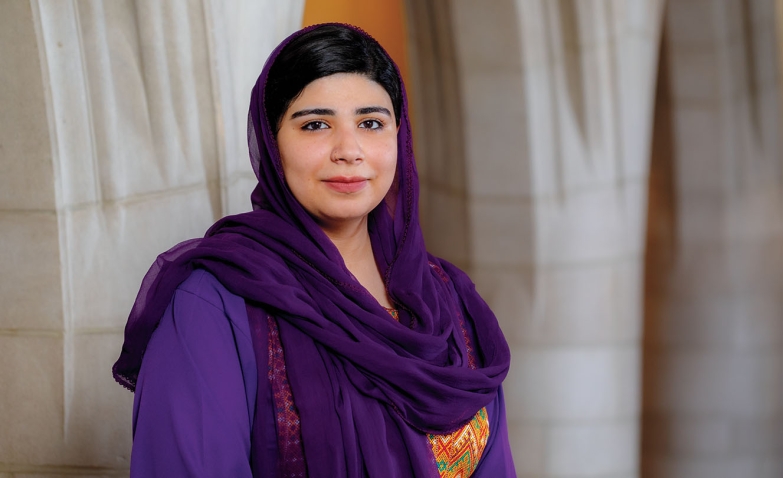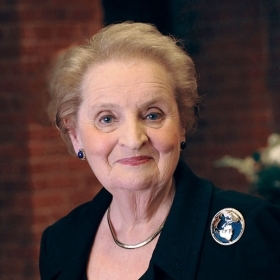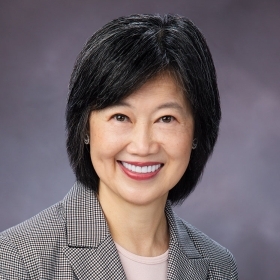Photo by Lisa Abitbol
Before last summer, human rights activist Pashtana Durrani lived in Kandahar, working as executive director of LEARN Afghanistan, a nonprofit she founded in 2018 to expand educational opportunities in the country. At the same time, the then 23-year-old was pursuing a degree in political science at American University Afghanistan.
All that changed when the Taliban regained power in August. Durrani quickly went into hiding to protect her family. She stayed in Afghanistan during the initial weeks of Taliban control, but she left after regional security services told her people were plotting to attack her. She ultimately accepted a visiting fellowship at the Wellesley Centers for Women, arriving on campus in November. During her two-year appointment, she is researching ways to help Afghan women and girls pursue education and support the health of Afghan mothers and babies. She is also finishing her degree at American University Afghanistan remotely.
“I needed to put my education first,” Durrani says. “If I am well educated, I can serve my country and my people better. I also literally made intelligence services anxious, and people wanted me dead or in exile. So I chose exile.”
Durrani grew up in a displaced persons camp in Pakistan, where she was born after her family left Kandahar to distance themselves from the civil war and emerging Taliban control of the country. “I think the best memory of my childhood would be my dad getting me books from Afghanistan to teach me Pashto and Dari, my own native languages, and learning history, culture, and everything amazing about Afghanistan,” Durrani says.
As a teenager, Durrani aspired to become a diplomat, but that changed during a visit to family in Kandahar. There, she saw firsthand how unsafe it was for girls to travel to school. She also saw how much a younger cousin wanted to learn how to use a computer, and she saw other cousins teaching themselves Hindi by watching television. She realized that there was “a huge need for digital literacy,” particularly in rural areas with almost no access to the internet.
That experience inspired Durrani to found LEARN to make education available to girls who don’t have access to schools, and to provide access to technological education through community schools in underserved and impoverished areas. Between its inception in 2018 and last fall, LEARN provided resources, professional training, mentoring, and access to technology to more than 7,000 Afghan children and teenagers, as well as classes and lesson plans for subjects as wide-ranging as biophysics, graphic design, and coding. The organization has also developed tools that enable students to learn outside of school and offline. Since the Taliban regained power, LEARN has been operating its schools in undisclosed locations; as this magazine went to press, seven were open.
Now, at the Wellesley Centers for Women, Durrani is researching better ways to distribute humanitarian aid and strategies for mitigating the corruption that she has frequently witnessed in the humanitarian aid industry. “I want to study the international aid cycle and how it exists within Afghanistan, and how it has used Afghans to get more funding and do very little in [the country],” Durrani says.
Durrani is also enjoying Wellesley’s campus and finding ways to maintain her daily routines. She is active on Twitter and Instagram, where she connects with her international network of friends, sharing snapshots of her new life, including the green tea she brews in her apartment near campus and her current favorite Billie Eilish songs. As the humanitarian crisis in Afghanistan worsened over the winter, Durrani organized meal programs for mothers and infants, and she worked on opening LEARN schools in Takhar, Helmand, Faryab, Mazar, and Nangarhar. She also coordinated aid for families who survived a flood in Kandahar, and for families suffering displacement in Bamyan.
In addition to her aid work, Durrani is planning her own podcast series that will focus on the variables that affect women’s education and the realities of women’s health and literacy gaps in developing countries; she also has a memoir scheduled to be published later this year.
The return of the Taliban has not extinguished Durrani’s vision for her homeland as a place where all are free to learn and pursue their ambitions. “Today, [the Taliban] are in power,” she says. “But they’ll probably lose it. That’s how governments work in Afghanistan. I’m hopeful they will lose power again.”








We ask that those who engage in Wellesley magazine's online community act with honesty, integrity, and respect. (Remember the honor code, alums?) We reserve the right to remove comments by impersonators or comments that are not civil and relevant to the subject at hand. By posting here, you are permitting Wellesley magazine to edit and republish your comment in all media. Please remember that all posts are public.